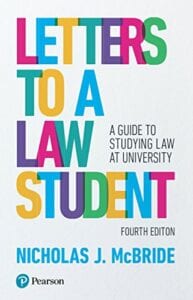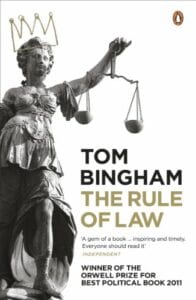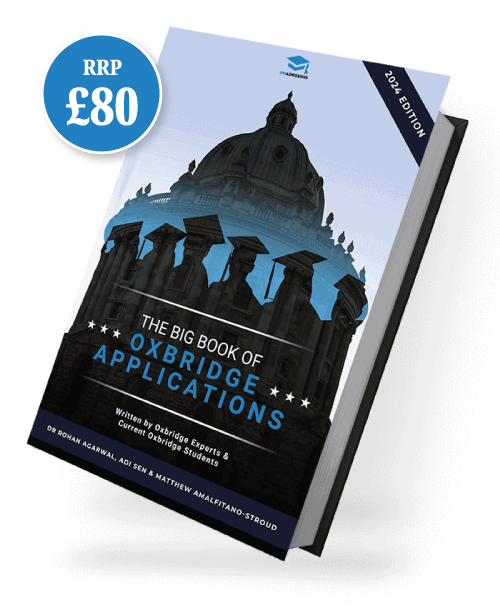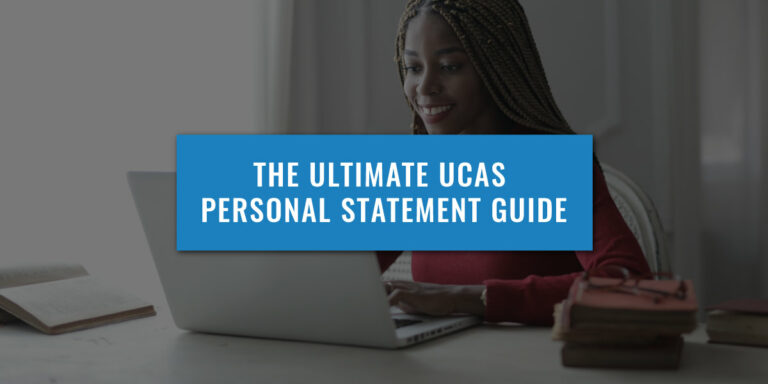In many cases, the Personal Statement is the most important part of your law application. The key to writing a good Personal Statement to study law lies in bearing in mind the purpose of a Personal Statement.
The purpose of a Personal Statement is generally to demonstrate a student’s interest in their chosen subject and, secondly, to evidence their suitability for the study of that subject. Admissions tutors want to read an honest characterisation of you as a student and as individual.
Of course, before you begin looking at the law-specific aspects of your Personal Statement, you should ensure that you have a firm understanding of how you should plan, structure, write and edit your statement in a general sense. If you would like to learn more about this, we would recommend checking out our Ultimate UCAS Personal Statement Guide, which will provide you with plenty of information and tips to ensure you perfect your Personal Statement.
If you’re ready to learn how you can perfect your Personal Statement for law, then let’s start with the key principles to consider when writing your Law Personal Statement.
The Two Principles of writing your Law Personal statement
There are so many things to consider when writing a personal statement that sometimes, you don’t which ones to follow or prioritise. There are two additional things to bear in mind where law Personal Statements are concerned:
Your interest and suitability should be demonstrated in relation to law as an academic subject - not law as a career.
Principle #1
The LPC (Legal Practice Course) and the BPTC (Bar Professional Training Course) are separate courses geared towards making a student prepared for a career in law. In contrast, an undergraduate degree in law at university is not – it focuses, instead, on law as an academic subject. It is best practice to avoid speaking about your interest in the legal profession and focus instead on what it is about law as a subject that draws you to it.
For example, consider important law-related academic milestones of recent years and discuss how these have influenced you. You can mention cryptocurrency or the commercial use of drones. These topics might not seem law related at first, but the required legislation to have these elements present in society is most definitely a law problem.
Writing the Personal Statement is itself an opportunity for you to demonstrate skills which the study of law would require.
Principle #2
Namely, the ability to make a coherent case (in this case, for your admission), to follow a clear structure in each of the three questions and to express yourself concisely. A fun approach you could take is to think of your Personal Statement as your case to prove you are guilty or innocent (in other words, deserving of a place at your chosen university). Bring some charming humour into it (though don’t go overboard) and make it a memorable Personal Statement.
Get your place at Oxford or Cambridge to study Law with support from UniAdmissions
UniAdmissions’ Full-Blue Law Programmes are designed with the sole focus of getting you your offer. Students enrolled on our Programmes have triple the chances of success. Not applying to Oxbridge? Click here for non-Oxbridge Full-Blue Law Programmes.
Get started with your Full-Blue Law Programme today and triple your chances of success!
What to Do Before writing your law personal statement
You might be wondering: how can I demonstrate interest in law as a subject when I have little knowledge on what studying it at university will involve? This problem can, however, be overcome through adequate preparation before writing the statement. One way to prepare is by reading law books – that is – introductory law texts suitable for those who have never studied law before. One such text is Criminal Law: The Basics – by Jonathan Herring.





It is important to read these texts not to learn about law, but to gain some insight into what studying Llaw involves and why you find it interesting. Articles in the news on Law-related subjects can also be useful in introducing you to controversial legal issues; for example, The Economist previously published an article on the European Court of Justice’s ruling on a discrimination case (concerning whether employers can sack employees who refuse to remove their headscarves).
Mentioning such issues in your Personal Statement, and, more crucially, explaining why they draw you to the study of law, as well as your thoughts on how the issues should be resolved, can be a great way to demonstrate your interest. Another preparatory step to take before writing the statement is work experience.
This, however, is not essential, and any work experience you complete should only be mentioned if it somehow increases your interest in law as an academic subject or if afforded you the opportunity to develop skills which will enable you to be a good Law student.
Don’t worry if you’re not able to find work experience: another thing you can do is go into a court to watch a court case (courts in this jurisdiction are open to all). Another worthwhile activity is undertaking an extended essay or the Extended Project Qualification at school; this can give you the opportunity to develop research skills and look into a Law-related topic over a long period of time.
Access "The Big Book Of Oxbridge Applications" For FREE
There’s lots more to consider in the Oxbridge Law admissions process, including the admissions tests, interviews and more, so claim your free digital copy of The Big Book Of Oxbridge Applications, now. In over 350 pages, you’ll find:
- Over 40 admissions test practice questions
- 28 example Oxbridge Personal Statements
- Interviews with Oxbridge students and graduates
- Additional downloadable resources
Fill in your details below to claim your digital copy today!

Writing Your law personal statement: structure and style
If you’re not already aware, the UCAS Personal Statement is split into three distinct questions that each give you a chance to discuss a different part of your experiences and skills:
- Why do you want to study this course or subject?
- How have your qualifications and studies helped you to prepare for this course or subject?
- What else have you done to prepare outside of education, and why are these experiences useful?
When planning your Personal Statement, you should ensure you create a list of all the potential talking points that could fit into each of these questions. You won’t have space to discuss everything in these lists, so aim to narrow your selection down to two or three topics per question. Focus on the topics that are most relevant and most impressive, such as relevant work experience or times where you held positions of authority.
The key to a great Personal Statement is to be reflective about everything you discuss and link it all back to your application. If you were a team captain for a sports team at school, explain what that experience taught you and how those skills will be valuable once you enter university and beyond.
One thing to bear in mind whilst writing the statement is that it is best not to be dramatic; it can be tempting to use a multitude of adjectives – this should be avoided as the statement tends to start getting bloated and sounding silly. Besides, a better technique for producing an interesting statement is using examples to evidence statements and being as precise as possible.
Below are some great examples of a Personal Statement for Oxbridge Law applications (keep in mind that these are written in the former Personal Statement style):
We hope you have found this guide helpful and that you’re prepared to start working on your Personal Statement.
Success rates for students studying Law can be as low as 12% – UniAdmissions’ average success rate is 59%.
UniAdmissions’ Full-Blue Law Programmes are designed with the sole focus of getting you your offer. Students enrolled on our Programmes have triple the chances of success. Not applying to Oxbridge? Click here for non-Oxbridge Full-Blue Law Programmes.
Get started with your Full-Blue Law Programme today and triple your chances of success!







